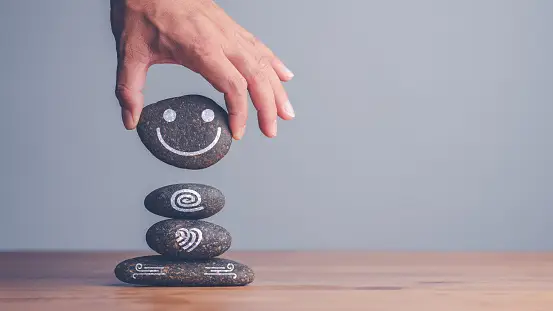In our fast-paced and demanding world, self-care often takes a back seat to other responsibilities. However, prioritizing self-care is essential for maintaining mental and emotional well-being. Self-care practices help manage stress, improve mood, enhance mental clarity, and foster emotional resilience. They are crucial for preventing burnout and promoting a balanced, healthy life. This comprehensive guide explores a variety of self-care practices, from physical activities like exercise and nutrition to emotional techniques such as mindfulness and building a support system. It also covers mental self-care, social interactions, spiritual activities, creative outlets, and practical strategies. Each section provides detailed and up-to-date information to help you develop a personalized self-care routine that suits your needs. By incorporating these practices into your daily life, you can improve your overall well-being and navigate life’s challenges with greater ease and positivity.
Understanding Self-Care
What is Self-Care?
Self-care involves taking deliberate actions to preserve or improve your mental, emotional, and physical health. It is a proactive approach to maintaining well-being and preventing burnout. Self-care is not a one-size-fits-all concept; it encompasses a variety of activities tailored to an individual’s needs and preferences. These activities can be as simple as taking a walk in nature, practicing mindfulness, or setting aside time for hobbies.
Importance of Self-Care
Self-care is crucial for maintaining a balanced life. It helps in reducing stress, preventing mental health issues, and enhancing overall quality of life. Regular self-care practices can lead to:
- Improved mental clarity and focus
- Enhanced emotional resilience
- Better physical health
- Increased productivity
- Greater life satisfaction
Physical Self-Care
Regular Exercise
Exercise is one of the most effective self-care practices for mental and emotional well-being. Physical activity releases endorphins, which are natural mood lifters. Regular exercise can reduce symptoms of depression and anxiety, improve sleep, and boost overall energy levels.
Types of Exercise
- Aerobic Exercise: Activities such as running, cycling, and swimming increase heart rate and improve cardiovascular health.
- Strength Training: Lifting weights or bodyweight exercises build muscle mass and strength.
- Flexibility Exercises: Yoga and stretching improve flexibility, balance, and relaxation.
Nutrition and Hydration
A balanced diet rich in nutrients is essential for maintaining mental and emotional health. Proper nutrition can affect mood, energy levels, and cognitive function.
Key Nutritional Tips
- Eat a Balanced Diet: Include a variety of fruits, vegetables, whole grains, lean proteins, and healthy fats.
- Stay Hydrated: Drink plenty of water throughout the day to stay hydrated.
- Limit Processed Foods: Reduce intake of sugary, fatty, and processed foods that can negatively impact mood and energy levels.
Adequate Sleep
Sleep is crucial for mental and emotional well-being. Lack of sleep can lead to irritability, difficulty concentrating, and increased stress levels.
Tips for Better Sleep
- Establish a Sleep Routine: Go to bed and wake up at the same time each day.
- Create a Relaxing Environment: Keep your bedroom cool, dark, and quiet.
- Limit Screen Time: Avoid screens at least an hour before bedtime to reduce blue light exposure.
Emotional Self-Care
Practicing Mindfulness
Mindfulness involves being present in the moment and accepting it without judgment. It helps in reducing stress, improving focus, and enhancing emotional regulation.
Mindfulness Techniques
- Mindful Breathing: Focus on your breath, observing each inhale and exhale.
- Body Scan Meditation: Pay attention to different parts of your body, noting any sensations.
- Mindful Observation: Engage with your surroundings using all your senses.
Emotional Awareness
Being aware of your emotions and understanding how they influence your thoughts and behaviors is essential for emotional well-being.
Steps to Enhance Emotional Awareness
- Identify Emotions: Take time to recognize and label your emotions.
- Understand Triggers: Identify situations or thoughts that trigger certain emotions.
- Express Emotions: Find healthy ways to express your emotions, such as talking to a friend or journaling.
Building a Support System
Having a strong support system is vital for emotional well-being. Friends, family, and support groups can provide comfort, advice, and companionship.
Tips for Building a Support System
- Nurture Relationships: Spend time with loved ones and maintain regular communication.
- Join Support Groups: Participate in groups where you can share experiences and receive support.
- Seek Professional Help: Consider therapy or counseling for professional guidance and support.
Mental Self-Care
Lifelong Learning
Engaging in continuous learning stimulates the brain and promotes mental well-being. It keeps the mind active and engaged, reducing the risk of cognitive decline.
Ways to Engage in Lifelong Learning
- Read Regularly: Reading books, articles, and research papers on various topics.
- Take Courses: Enroll in online or offline courses to learn new skills.
- Explore Hobbies: Pursue hobbies that challenge your mind, such as puzzles, games, or crafts.
Practicing Gratitude
Gratitude involves recognizing and appreciating the positive aspects of life. It can improve mood, increase life satisfaction, and reduce stress.
Gratitude Practices
- Gratitude Journaling: Write down things you are grateful for each day.
- Express Gratitude: Share your appreciation with others through words or gestures.
- Reflect on Positive Experiences: Take time to reflect on positive moments and experiences.
Time Management
Effective time management can reduce stress and improve productivity. It allows you to balance responsibilities and make time for self-care activities.
Time Management Strategies
- Prioritize Tasks: Focus on the most important tasks first.
- Set Realistic Goals: Set achievable goals and break them into smaller steps.
- Use a Planner: Organize your schedule using a planner or digital calendar.
Social Self-Care
Maintaining Healthy Relationships
Healthy relationships contribute significantly to emotional and mental well-being. They provide support, companionship, and a sense of belonging.
Tips for Healthy Relationships
- Communicate Openly: Practice honest and open communication with loved ones.
- Set Boundaries: Establish and respect boundaries to maintain healthy interactions.
- Show Appreciation: Regularly express appreciation and gratitude to those around you.
Engaging in Social Activities
Social activities can boost mood, reduce feelings of loneliness, and improve overall well-being.
Ideas for Social Activities
- Join Clubs or Groups: Participate in clubs or groups that interest you.
- Volunteer: Engage in volunteer work to connect with others and give back to the community.
- Plan Social Outings: Organize outings with friends or family to stay connected.
Digital Detox
Reducing screen time and taking breaks from digital devices can improve mental clarity and reduce stress.
Digital Detox Strategies
- Set Limits: Establish limits on screen time and stick to them.
- Unplug Regularly: Take regular breaks from digital devices, especially before bed.
- Engage in Offline Activities: Spend time on activities that do not involve screens, such as reading, walking, or cooking.
Spiritual Self-Care
Meditation and Yoga
Meditation and yoga are powerful practices that can enhance spiritual well-being. They promote relaxation, mindfulness, and a deeper connection with oneself.
Benefits of Meditation and Yoga
- Reduce Stress: Both practices help in reducing stress and anxiety.
- Improve Concentration: They enhance focus and mental clarity.
- Promote Inner Peace: Meditation and yoga foster a sense of inner peace and balance.
Connecting with Nature
Spending time in nature can rejuvenate the mind and spirit. It provides a break from the hustle and bustle of daily life and promotes a sense of calm.
Ways to Connect with Nature
- Nature Walks: Take regular walks in parks or nature reserves.
- Gardening: Engage in gardening to connect with the earth and cultivate mindfulness.
- Outdoor Activities: Participate in outdoor activities such as hiking, camping, or bird-watching.
Exploring Spirituality
Exploring spirituality can provide a deeper sense of purpose and connection. This can be through religious practices, personal reflection, or exploring philosophical beliefs.
Spiritual Practices
- Prayer: Engage in prayer or contemplation according to your beliefs.
- Reflection: Spend time in self-reflection and introspection.
- Community Involvement: Participate in community or spiritual groups to connect with like-minded individuals.
Creative Self-Care
Engaging in Creative Activities
Creative activities can be a great outlet for expressing emotions and reducing stress. They can also boost self-esteem and provide a sense of accomplishment.
Creative Outlets
- Art: Engage in painting, drawing, or sculpting.
- Writing: Write stories, poems, or journals.
- Music: Play an instrument, sing, or listen to music.
Exploring New Hobbies
Trying new hobbies can provide mental stimulation and a break from routine. It can also be a way to discover new passions and interests.
Ideas for New Hobbies
- Cooking: Experiment with new recipes and cooking techniques.
- Crafts: Try knitting, sewing, or other craft activities.
- Photography: Explore photography as a way to capture and appreciate moments.
Practicing Self-Expression
Self-expression through creative activities can help in processing emotions and improving mental clarity.
Self-Expression Techniques
- Journaling: Write about your thoughts, feelings, and experiences.
- Art Therapy: Use art as a therapeutic tool to express and understand emotions.
- Dance: Use movement and dance as a form of self-expression and stress relief.
Practical Self-Care
Organizing Your Space
A clean and organized space can improve mental clarity and reduce stress. It creates a more conducive environment for relaxation and productivity.
Tips for Organizing Your Space
- Declutter Regularly: Remove unnecessary items and keep your space tidy.
- Create Functional Spaces: Designate areas for work, relaxation, and hobbies.
- Personalize Your Space: Decorate with items that bring you joy and comfort.
Financial Self-Care
Managing finances effectively can reduce stress and contribute to overall well-being. Financial self-care involves budgeting, saving, and making informed financial decisions.
Financial Management Tips
- Budgeting: Create a budget to manage your income and expenses.
- Saving: Set aside money for savings and emergency funds.
- Investing: Make informed investment decisions to secure your financial future.
Time for Relaxation
Taking time to relax and unwind is crucial for mental and emotional well-being. It allows you to recharge and reduce stress.
Relaxation Techniques
- Deep Breathing: Practice deep breathing exercises to relax and reduce stress.
- Mindful Relaxation: Engage in activities like reading, listening to music, or taking a bath.
- Scheduled Downtime: Set aside specific times for relaxation and self-care.
Conclusion
Prioritizing self-care is essential for maintaining mental and emotional well-being. By incorporating physical, emotional, mental, social, spiritual, creative, and practical self-care practices into your daily routine, you can enhance your overall quality of life. Remember that self-care is a personal journey, and it’s important to find practices that resonate with you and fit your lifestyle. Taking small, consistent steps towards self-care can lead to significant improvements in your mental and emotional health, helping you navigate life’s challenges with greater resilience and positivity.




